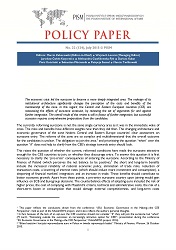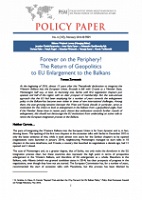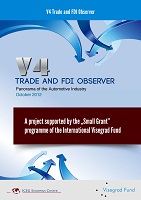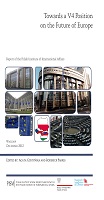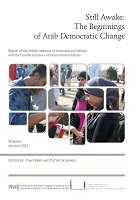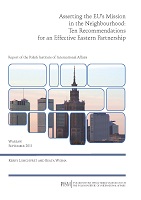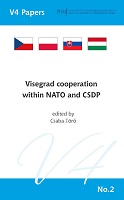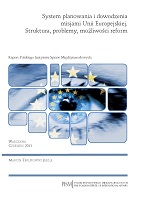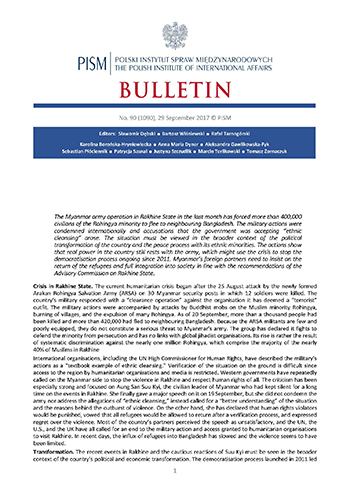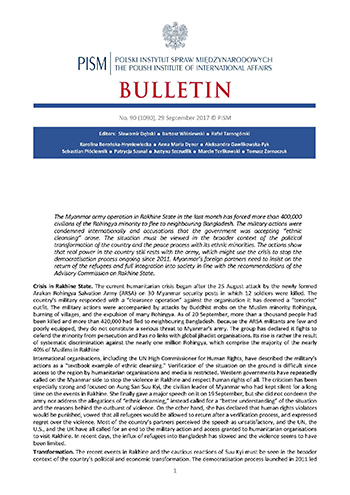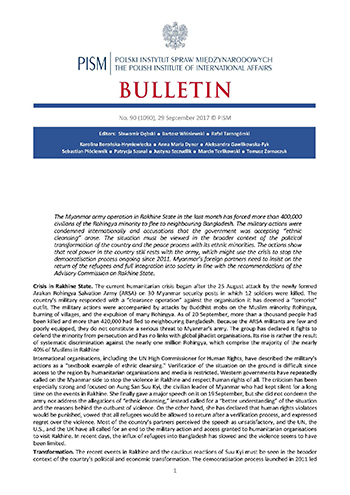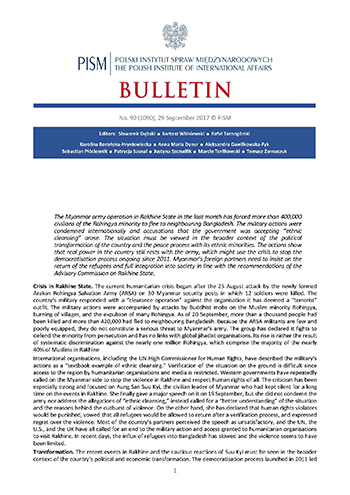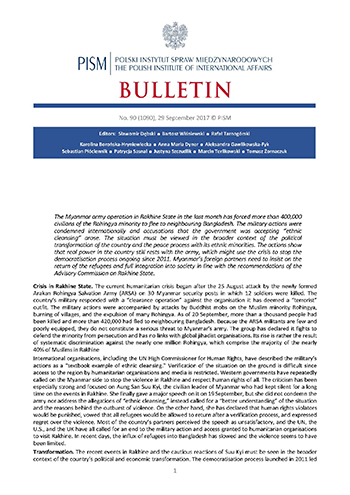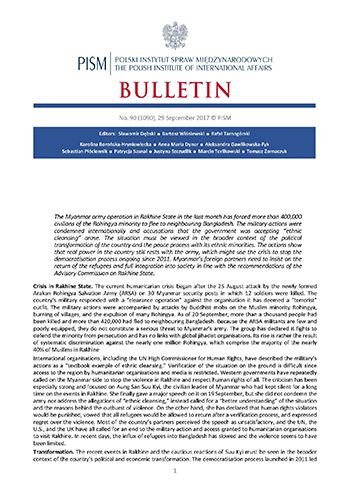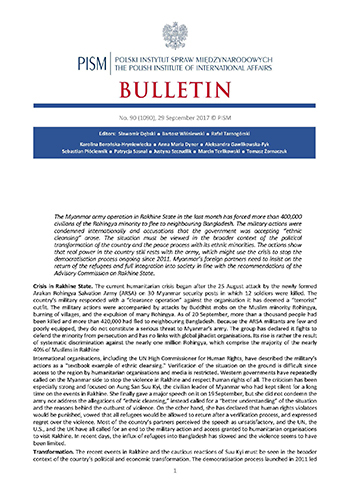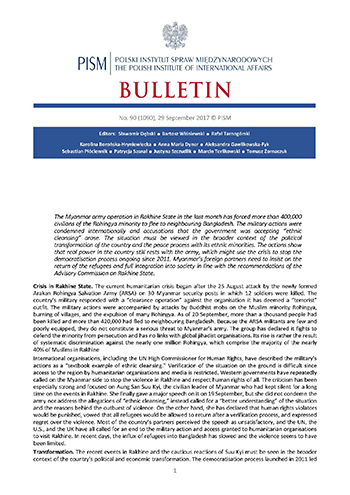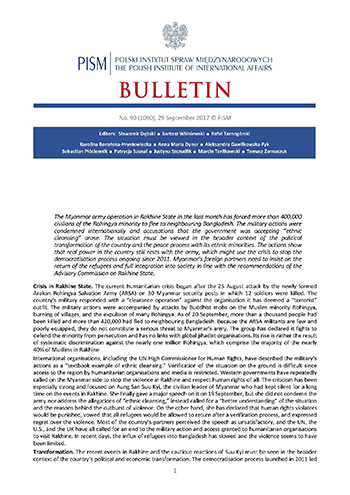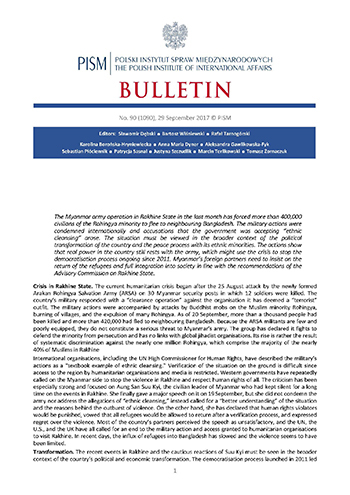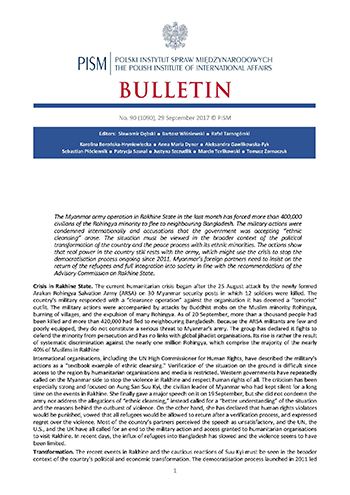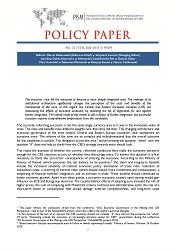
№019: India in Afghanistan: Valuable Partner of the West
Recent conclusion of the Agreement on Strategic Partnership between Afghanistan and India has underscored India’s low-profile engagement in the war-torn country. This paper presents the record of Indian involvement in Afghanistan after 2001 and analyses the potential for increased presence at three distinct levels: civilian, military and regional. The author argues that in spite of Pakistani objections, the West should strengthen cooperation with India in reconstruction and stabilisation efforts in Afghanistan while providing strong incentives for constructive regional cooperation in South Asia. Even as NATO is gearing up for a responsible exit from Afghanistan, its neighbours are there to stay. Crucially, the role that India can play in Afghanistan needs to be reassessed. The upcoming conferences in Istanbul and Bonn offer an excellent opportunity in this respect.
More...
